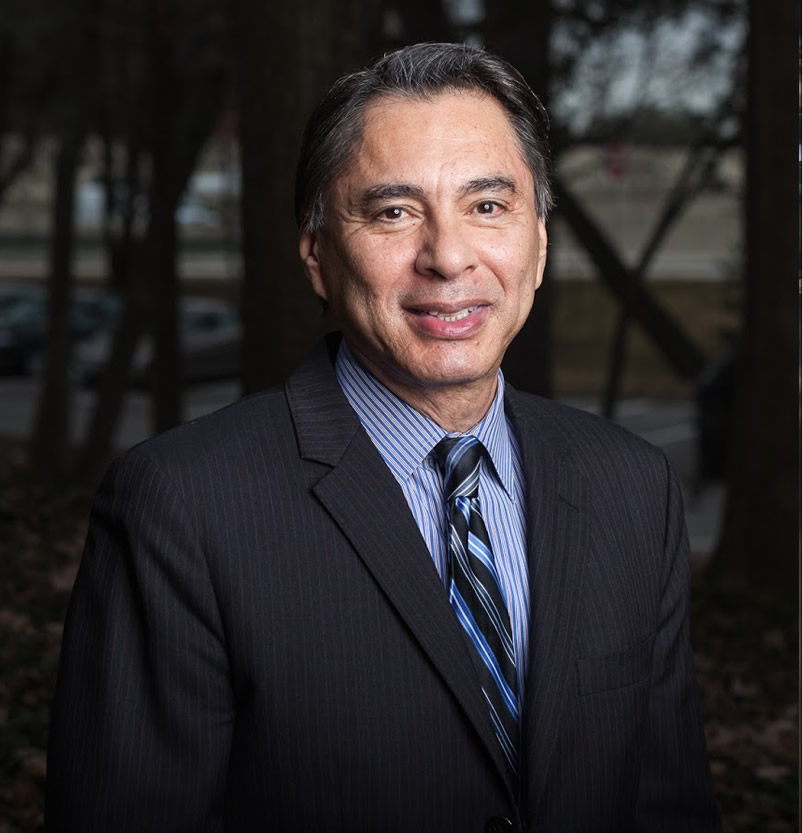The Firm
Law Office of Isaias Torres

Meet Attorney
Isaias Torres
Isaias Torres has dedicated his career in the practice of law for over forty-five (45) years in service and in defense of immigrants. From his office in Houston, Texas his law practice has left a mark on national, state and local platforms. He has litigated cases in Federal Courts as well as the United States Supreme Court with impact at a national level. At the state level former Texas governor Ann Richards appointed him to the Texas Ethics Commission. Isaias Torres was later elected as president of that commission by his fellow commissioners. At the local level in the city of Houston, Texas he has participated as a member of the board of directors of several non-profit organizations. As a professor of law, he has lectured in the three (3) Houston law schools and has also published legal articles regarding immigration law. [Houston Journal of International Law, Vol. 5 No.4 (1983); Houston Law Review, Vol. 13, No. 5 (1976)]. All these activities in the community were engaged in at the same time he was tending to his practice of law and service to his clients.
Since he began his career in 1975 at the law school at Georgetown University (a Jesuit college established in 1789 in, Washington, D.C.), he has specialized in immigration law. There he and other students began a defense program for immigrants. He received his Doctor of Jurisprudence degree from Georgetown University in 1978. That same year he also received his Texas law license. Isaias Torres began to work as a lawyer exclusively in the field of immigration out of a church building in the north side of Houston, Texas. He immediately joined a group of attorneys that initiated a series of lawsuits in Houston to defend the rights of undocumented children that were not allowed to attend public schools at that time. He participated and prevailed in a landmark case known as Plyler v. Doe 457 U.S. 202 (1982), affirming 501 F.Supp. 544 (S.D. Tex. 1981) wherein the United States Supreme Court on June 15, 1982 voted favorably 5-4. Isaias Torres along with other attorneys argued before the United States Supreme Court and won the constitutional right to education for undocumented children. Coincidentally exactly thirty (30) years later on June 15, 2012, President Barack Obama approved immigration benefits called Deferred Action for Childhood Arrivals (DACA) for that same group of undocumented children. In another federal class-action of national importance Isaias Torres was the prevailing primary litigant in the case known as LULAC v. Pasadena I.S.D., 662 F.Supp. 443 (S.D. Tex. 1987) which won the protection of immigrant workers at a school district
In 1984 Isaias Torres received his board certification in Immigration and Nationality law from the Texas Board of Legal Specialization. He maintained that license for thirty-five (35) years until December 2019.
In 1991 former governor Ann Richards named Isaias Torres a member of the State of Texas Ethics Commission. The jurisdiction of this commission is to overlook the ethical conduct of public officials within the legislative, judicial and executive branches of the state of Texas. On one occasion the eight (8) members of the Ethics Committee voted and elected Isaias Torres as president of the Ethics Commission of the state of Texas. For several years Isaias Torres served in this commission with no salary and on an honorary basis.
Throughout the years Isaias Torres has had an exemplary career where he has received many awards from the community such as “Hispanic of the Year” from the Houston Fiestas Patrias, “Outstanding Young Houstonian” from the Houston Chamber of Commerce, “Outstanding Litigator” from the American Immigration Lawyers Association (AILA) Texas Chapter, and also “Outstanding Lawyer” from the Texas Mexican-American Bar Association.
For Isaias Torres the quality of service he has provided to his clients that continue to reach out to him for over forty-five (45) years has been his most important achievement. Isaias Torres has identified himself with problems faced by immigrants and his greatest satisfaction has been finding solutions to these problems. He believes that we come to this world with a purpose to leave a legacy for the next generations by making a positive impact on the improvement and betterment of our community.
